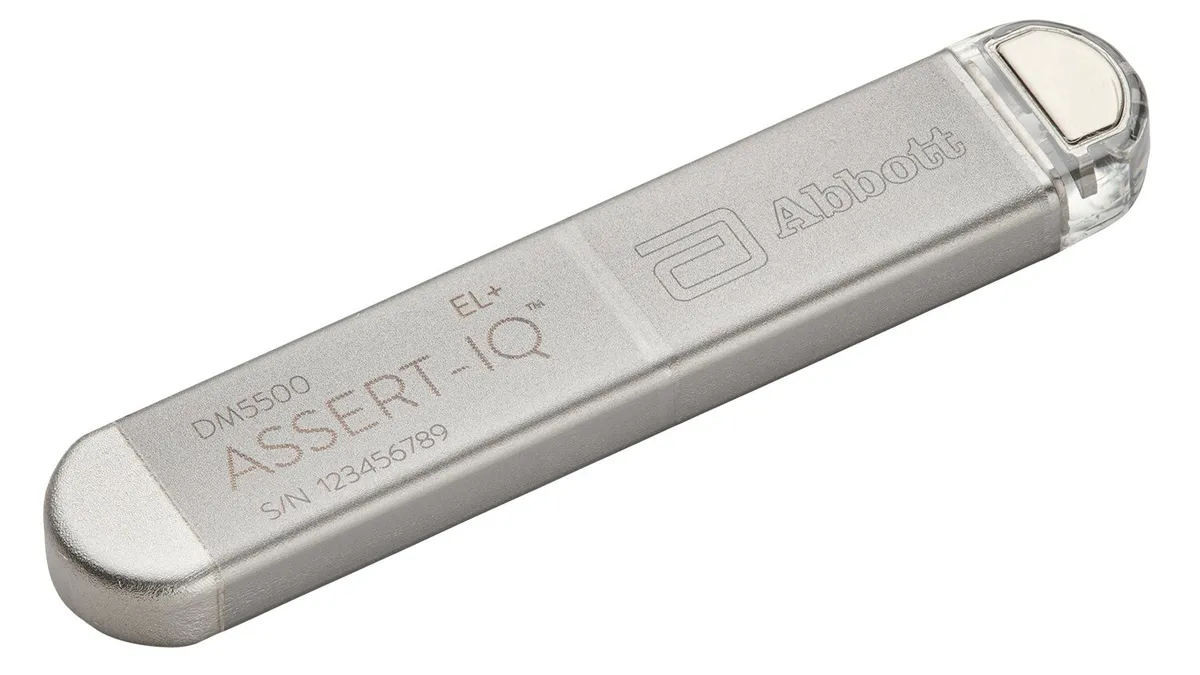Dive Brief:
- Abbott has won U.S. Food and Drug Administration clearance for an insertable cardiac monitor (ICM) with a six-year battery life.
- Rival devices sold by Biotronik, Boston Scientific and Medtronic have battery lives ranging from three to 4.5 years. Abbott sees the six-year battery life, which it will offer alongside a three-year version, as useful for patients receiving therapy or after a cardiac ablation procedure.
- The 510(k) clearance of Abbott’s Assert-IQ ICM continues the rivals’ jostling for market position, which has seen Boston Scientific enter the space and Medtronic secure an expanded label for pediatric use in recent years.
Dive Insight:
There are signs that Boston Scientific won market share from the other companies when it brought its LUX-Dx ICM system to market in 2020. Management told investors multiple times over the quarters after the launch that LUX-Dx was outpacing the growth of the wider market. One analysis found that Abbott was one of the companies that lost market share as Boston Scientific’s launch gained traction.
Now, Abbott has hit back with a new device that differentiates its ICM from the competition. Previously, the 4.5-year battery life of Medtronic’s LINQ II device made it the longest-lasting device on the market, but physicians who want to monitor a patient’s heart health for the long term now have another option.
According to Abbott, the six-year battery could be particularly valuable to physicians who are monitoring people undergoing therapy, who have recently had a cardiac ablation procedure or who are at risk of developing further arrhythmias such as atrial fibrillation.
Leonard Ganz, chief medical officer of Abbott's cardiac rhythm management business, explained the need addressed by the device. “Until now, insertable cardiac monitors have allowed for remote monitoring of patients but lacked the longevity needed to monitor them long term. Abbott's Assert-IQ ICM offers physicians a connected health device that will help them provide the best care for their patients while making more accurate and informed treatment decisions,” Ganz said in a statement.
Abbott is also providing a three-year version for when shorter-term monitoring is needed. The devices check heart rhythms every 20 seconds and use Bluetooth to transmit data to the clinic's portal. Abbott has designed the algorithms to detect hard-to-spot heart rhythm irregularities.













